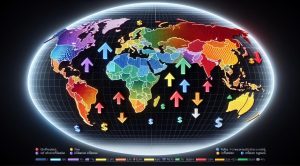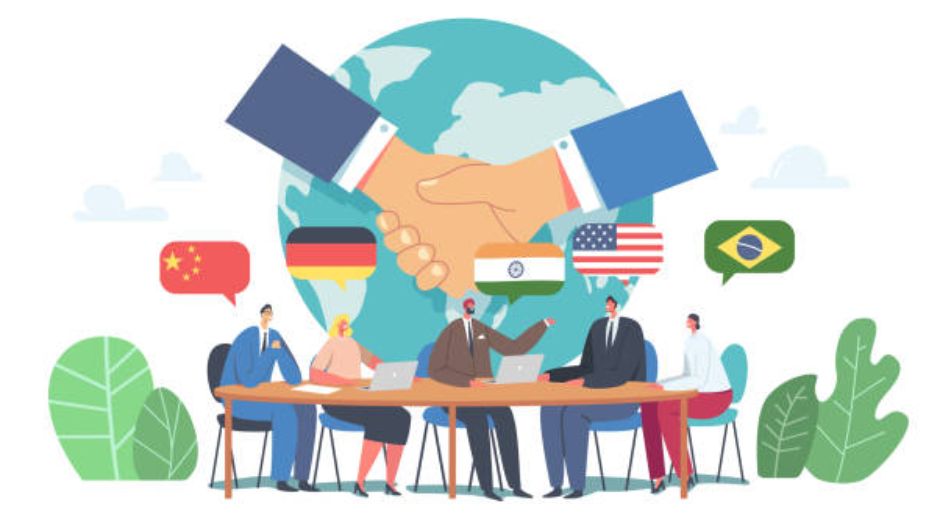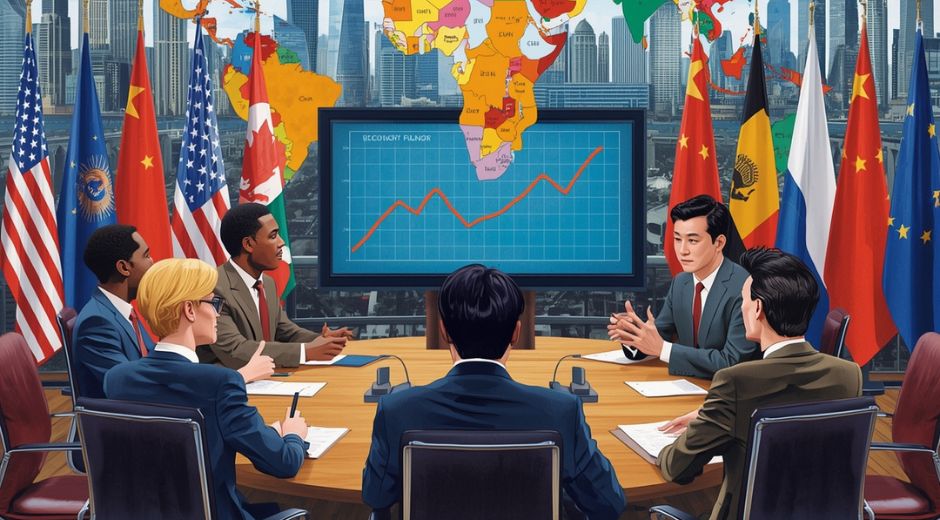Sanctions and Global Power: How Economic Pressure Shapes Modern Diplomacy
In today’s interconnected world, wars are not always fought with weapons. More often, they are fought with Sanctions. These powerful tools of economic pressure influence everything from international trade and political alignment to human rights and resource control. While military conflicts make headlines, Sanctions quietly shape the balance of power behind the scenes, deciding who thrives and who struggles in the global arena.
The rise of Sanctions as a primary instrument of modern diplomacy marks a profound shift in how nations assert influence. Instead of direct confrontation, governments now use financial and trade restrictions to achieve strategic goals without physical violence. Yet the results are complex, often producing ripple effects that extend far beyond their intended targets.
The History and Evolution of Sanctions
The use of Sanctions is not new. Historical records show that even ancient civilizations employed forms of trade embargoes to weaken rivals. One of the earliest documented cases dates back to 432 BCE, when Athens imposed trade restrictions on Megara, a neighboring city-state, sparking the Peloponnesian War.
In the modern era, Sanctions gained prominence after World War I, when the League of Nations attempted to use economic measures as deterrents against aggression. The concept evolved further under the United Nations (UN), which now oversees multilateral sanctions targeting nations that violate international laws or threaten peace.
During the Cold War, Sanctions became a tool for ideological containment. Western nations imposed them against communist states, while Eastern blocs retaliated through trade barriers and resource control. In the 21st century, globalization has magnified their reach, intertwining politics with finance, energy, and technology.
How Sanctions Work
A Sanction is essentially a restriction or penalty imposed by one or more countries to influence another country’s behavior. They can target individuals, organizations, or entire economies.
The main types include:
Trade Sanctions – Restricting imports or exports of specific goods such as oil, weapons, or technology.
Financial Sanctions – Freezing assets or limiting access to international banking systems.
Travel Bans – Preventing political figures or business leaders from entering foreign countries.
Sectoral Sanctions – Targeting specific industries like energy, defense, or banking.
Comprehensive Sanctions – Full-scale embargoes that cut off almost all trade and financial interaction.
When applied strategically, Sanctions can disrupt economies, isolate leaders, and pressure governments into negotiation. However, their success depends heavily on international cooperation and enforcement.
The Political Logic Behind Sanctions
The goal of Sanctions is to create pain without direct conflict. By limiting access to capital, resources, or markets, they attempt to change a government’s policy decisions while avoiding military escalation.
For example, when a nation violates human rights or invades another territory, Sanctions serve as a public statement of condemnation. They signal to the international community that aggressive or unethical behavior has consequences.
However, Sanctions are also deeply political. They allow powerful countries to project influence and protect national interests. According to Reuters, nearly half of all active global sanctions originate from the United States, giving it immense leverage in global finance and trade.
Economic Power as Political Influence
Modern diplomacy increasingly revolves around economics. Nations no longer need to occupy territory to control it; they can simply restrict access to credit, technology, or export markets. Sanctions transform money into a weapon of control.
The U.S. dollar plays a central role in this system. Because most global transactions occur through dollar-denominated networks like SWIFT, countries that rely on these systems are vulnerable to U.S. financial sanctions. When a nation is excluded from these systems, its economy often collapses overnight.
This dominance, however, has motivated other powers to seek alternatives. China and Russia have developed their own payment networks and currency trade systems to reduce exposure. The result is a slow but noticeable shift toward financial multipolarity.
Humanitarian Impact and Ethical Debate
While Sanctions are designed to pressure governments, they often harm ordinary citizens first. Restrictions on trade can lead to shortages of medicine, food, or basic supplies. Economies under sanctions experience inflation, unemployment, and declining public services.
Critics argue that broad Sanctions can become collective punishment. The United Nations has faced growing pressure to design “smart sanctions” that target political elites while minimizing humanitarian consequences.
For instance, in nations where healthcare imports are restricted, hospitals struggle to provide essential treatments. This raises moral questions about whether the ends justify the means. Balancing justice and compassion remains one of the biggest challenges in international policymaking.
Case Study: Iran and Nuclear Diplomacy
Iran offers a textbook example of how Sanctions shape diplomacy. In the early 2000s, Western powers imposed strict financial and oil sanctions to curb Iran’s nuclear program. The restrictions crippled the economy, reducing oil exports and causing severe inflation.
In 2015, Iran agreed to the Joint Comprehensive Plan of Action (JCPOA), pledging to limit uranium enrichment in exchange for sanctions relief. The agreement temporarily revived Iran’s economy, but after the United States withdrew from the deal in 2018 and reinstated sanctions, economic decline returned sharply.
This case demonstrates both the power and fragility of sanctions-based diplomacy. It can coerce compliance, but without trust and consistency, it risks long-term instability.
Sanctions and the War in Ukraine
The Russian invasion of Ukraine in 2022 marked a turning point for Sanctions as a coordinated global tool. Western nations united to impose one of the most extensive economic packages in history, targeting Russian banks, energy exports, and state-owned enterprises.
These Sanctions aimed to weaken Russia’s war effort by limiting access to international finance and technology. The results were mixed. While the ruble initially collapsed, Russia adapted by strengthening ties with non-Western partners and developing domestic substitutes for restricted imports.
Still, the effort demonstrated unprecedented international coordination. Even neutral countries recognized that economic measures could be as impactful as military alliances.
Sanctions and Energy Politics
Energy is one of the most common targets of Sanctions, as it directly affects national budgets and infrastructure. Oil and gas exports fund many governments’ operations, making them strategic pressure points.
When the United States restricted Russian oil imports and Europe limited gas contracts, global energy prices spiked. This revealed the double-edged nature of Sanctions: they can hurt both the target and the enforcers.
In a connected market, punishing one player often triggers global consequences. Supply disruptions affect fuel costs, food production, and transportation worldwide. Policymakers must balance strategic objectives with economic stability at home.
The Digital Frontier of Economic Warfare
In the digital age, Sanctions have expanded into cyberspace. Governments now restrict access to software, data networks, and semiconductors. Technology has become a key battleground in modern geopolitics.
Restrictions against advanced chip exports, for instance, aim to slow technological progress in rival nations. This digital containment strategy shapes global innovation and power distribution.
According to Fixolix, analysts predict that future Sanctions will target artificial intelligence infrastructure and cloud computing systems, as these technologies define both military and economic competitiveness.
Digital sanctions raise new ethical questions about access to information, innovation, and online privacy. As the world moves toward digital interdependence, control of technology becomes as decisive as control of oil once was.
Sanctions and Global Alliances
The effectiveness of Sanctions depends heavily on international unity. When nations act together, the impact multiplies. When they divide, the system weakens.
The UN Security Council often faces disagreements between major powers, resulting in partial enforcement. Countries under sanctions seek alternative partnerships, forming new alliances that reshape global trade patterns.
For example, closer ties between sanctioned economies like Russia, Iran, and Venezuela have created parallel markets for oil, arms, and technology. These networks reduce the impact of Western sanctions and signal a growing shift in global order.
At Newspapersio.com, we analyze how such alliances illustrate the emerging competition between centralized global governance and decentralized cooperation among smaller power blocs. The geopolitical map is no longer defined solely by borders, but by flows of data, currency, and trade resilience.
The Role of Public Opinion and Media
In democratic societies, Sanctions often reflect public sentiment. Citizens demand accountability when foreign governments commit human rights violations or military aggression. Media coverage plays a crucial role in shaping these opinions.
However, public support can be fickle. When Sanctions lead to rising energy costs or inflation, domestic pressure may push governments to soften policies. Balancing moral leadership with economic stability requires careful communication.
Global media outlets like the BBC, CNN, and Al Jazeera have become essential platforms for explaining the purpose and consequences of Sanctions, influencing both public understanding and diplomatic pressure.
The Rise of Crypto and Sanctions Evasion
Digital currencies have introduced new complications for Sanctions enforcement. Cryptocurrencies like Bitcoin and stablecoins provide channels for cross-border transactions outside traditional banking systems.
While these technologies offer innovation and privacy, they also allow sanctioned individuals and organizations to bypass restrictions. Governments are now developing blockchain tracking tools to detect illicit activity.
The global financial community faces the challenge of balancing innovation with compliance. Stricter regulations are being introduced to ensure that the crypto market does not undermine the effectiveness of international Sanctions.
Sanctions and the Global South
Developing nations often find themselves caught in the middle of sanction conflicts. When major powers impose trade restrictions, supply chains for food, fuel, and medicine are disrupted globally.
African and Latin American countries, in particular, experience collateral effects from energy and commodity market shifts. Some governments use neutrality as leverage, negotiating with both sanctioned and sanctioning nations to secure economic benefits.
This dynamic underscores how Sanctions are not just diplomatic tools, but instruments that shape global inequality. Wealthier nations can absorb the impact, while poorer regions face indirect hardship.
The Future of Sanctions: Precision and Partnership
The next generation of Sanctions is likely to be more targeted, data-driven, and adaptive. Instead of broad economic restrictions, policymakers are turning toward “smart sanctions” that focus on specific individuals, corporations, and technologies.
Artificial intelligence will enhance the precision of enforcement by analyzing transaction data, logistics, and financial networks. Predictive modeling could identify sanction evasion patterns before they occur.
At the same time, international cooperation is evolving. Regional alliances such as the European Union and ASEAN are developing independent sanction frameworks, reducing reliance on global superpowers.
The goal is to balance justice with pragmatism, ensuring accountability while minimizing humanitarian costs.
Conclusion: Economic Power in a Shifting World
Sanctions have become the defining weapon of modern diplomacy. They allow nations to project power without direct confrontation, reshape alliances, and influence global policy through financial strength.
Yet they remain a double-edged tool. Used wisely, Sanctions can deter aggression and defend human rights. Used recklessly, they can destabilize economies and deepen inequality.
As technology, trade, and geopolitics evolve, the global community faces a crucial question: how can economic pressure serve peace instead of perpetuating division?
In a world where data and currency flow faster than borders can contain, the true power of Sanctions lies not only in punishment but in persuasion. The future of diplomacy will belong to those who master that balance between strength and restraint, between justice and compassion, between isolation and cooperation.
The Pulse of News

How Algorithm Governance Is Reshaping Public Policy
How Algorithm Governance Is Reshaping Public Policy

Global Inflation Signals, The Indicators Economists Watch Before Markets Move
Global Inflation Signals, The Indicators Economists Watch Before Markets Move

Smart City Surveillance, Safety Gains and the Privacy Tradeoff
Smart City Surveillance, Safety Gains and the Privacy Tradeoff

Ethical Newsrooms, How Media Standards Are Being Rebuilt
Ethical Newsrooms, How Media Standards Are Being Rebuilt

Space Economy Jobs, New Careers Emerging from the Orbital Boom
Space Economy Jobs, New Careers Emerging from the Orbital Boom

Telemedicine Regulations, What’s Changing for Patients and Providers
Telemedicine Regulations, What’s Changing for Patients and Providers

Fact Checking AI, Can Algorithms Reduce Misinformation at Scale
Fact Checking AI, Can Algorithms Reduce Misinformation at Scale

Battery Recycling, The Missing Link in the Energy Transition
Battery Recycling, The Missing Link in the Energy Transition

Heat Health Plan, Practical Steps to Protect Your Body in Hot Seasons
Heat Health Plan, Practical Steps to Protect Your Body in Hot Seasons













